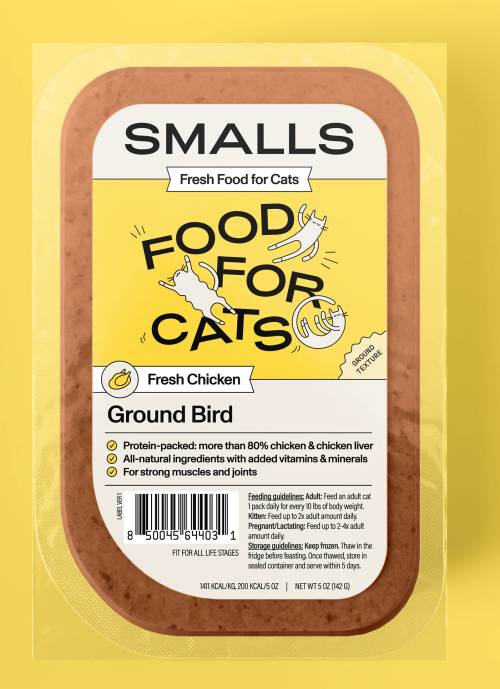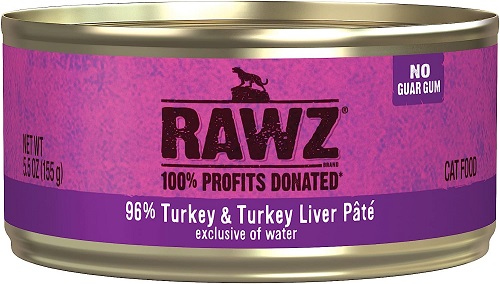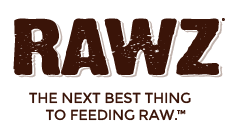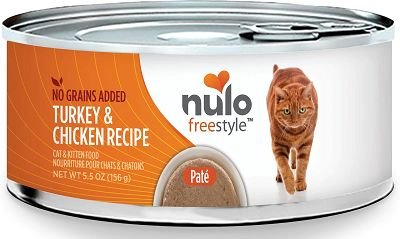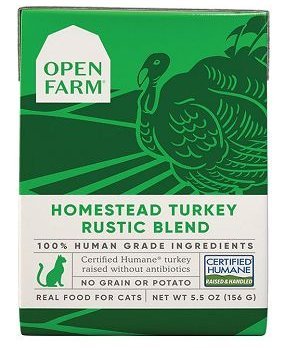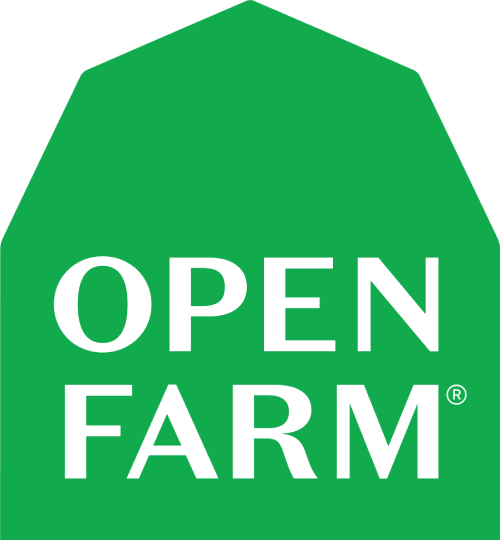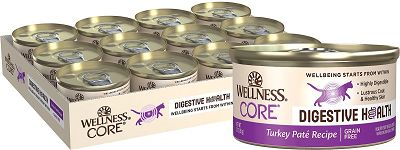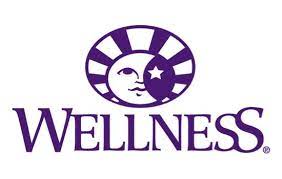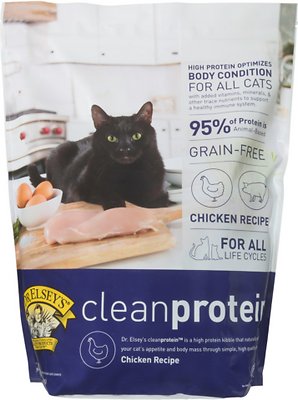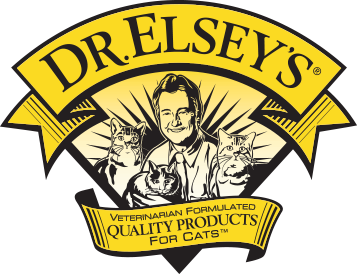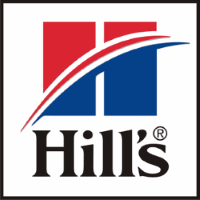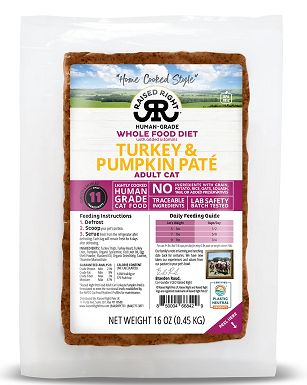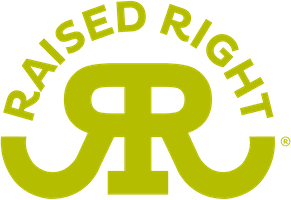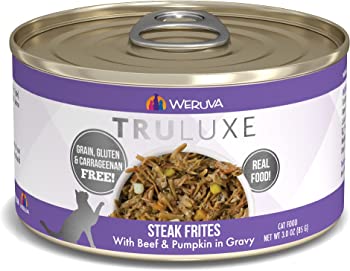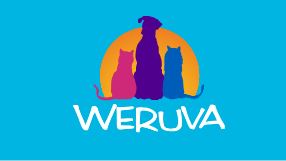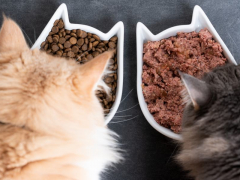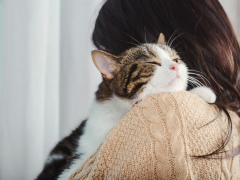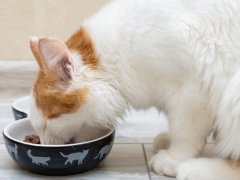Kirsten McCarthy / Cats.com
The best cat food for constipation promotes a healthy stool consistency. These foods are rich in hydrating moisture, made with easily digestible ingredients, and offer balanced fiber levels to ensure smooth and regular digestion.
When a cat is constipated, stool turns to stone, and bowel movements become increasingly frustrating. All the while, the digestive system continues merrily on, creating more waste to fill up the small intestine and double your cat’s discomfort.
In this guide, you’ll learn what features make a product appropriate for cats struggling with constipation. We’ve also assembled a list of our top picks for the best cat foods for constipation on the market.
At a Glance: The Best Cat Food for Constipation
Smalls Ground Bird Fresh Cat Food
- Rich in animal-sourced protein
- Cod liver oil provides omega-3 fatty acids
- Good source of hydration for your cat
RAWZ 96% Turkey & Turkey Liver Pate Canned Cat Food
- Contains a single source of animal protein
- Rich in hydrating moisture
- Limited list of digestible ingredients
Nulo Freestyle Turkey & Chicken Recipe Grain-Free Canned Cat Food
- Hydrating canned food
- Popular among cats with digestive issues
- Contains pumpkin
Open Farm Homestead Turkey Rustic Blend Wet Food
- Made with ethically and sustainably sourced ingredients
- Contains a single source of animal protein
- Rich in moisture to support hydration and digestion
Wellness CORE Digestive Health Turkey Pate Grain-Free Wet Cat Food
- Formulated to support digestive health
- Rich in animal-sourced protein and fat
- Salmon oil provides anti-inflammatory omega-3s
Dr. Elsey’s cleanprotein Chicken Recipe Dry Cat Food
- Numerous sources of quality animal protein
- Much lowers carb content than typical dry food
- Free from artificial additives and fillers
Hill's P/D Gastrointestinal Biome Dry Cat Food
- Contains ingredients to support a healthy GI tract
- Rich in omega-3 fatty acids as well as DHA and EPA
- Improves regularity and healthy stools for cats
Raised Right Turkey & Pumpkin Paté For Adult Cats
- Made with a short list of easily digestible ingredients
- Relies on animal-sourced protein and fat
- Doesn’t contain carrageenan or gums
Weruva Truluxe Steak Frites Dinner Canned Cat Food
- Rich source of animal protein
- Short list of easily digestible main ingredients
- Fairly low carbohydrate content
In this video, Dr. Sarah Wooten, DVM, discusses the signs of constipation in cats and how to treat it. The products recommended below were chosen with Dr. Wooten’s advice in mind.
Why Trust Cats.com
The products recommended below were carefully selected and tested by several members of our team with their own cats at home. Prior to selecting products for testing, we consulted our panel of veterinary advisors to learn more about the dietary management of constipation in cats. Relying on in-depth research and veterinary advice, we made our selections and purchased the products at full retail price.
Our in-home testing process involves a detailed analysis of each product’s nutritional makeup as well as research into the brand’s history. We also read customer reviews to gauge cat owner satisfaction with the products. Our cats provide their opinions on the food’s taste, texture, and general appeal while we make observations about the aroma, appearance, consistency, and packaging.
Our Veterinary Advisors:
- Dr. Sarah Wooten, DVM, CVJ
- Dr. Chris Vanderhoof, DVM, MPH
- Dr. Sarah Reidenbach, DVM
- Dr. Chyrle Bonk, DVM
- Dr. Jamie Whittenburg, DVM
- Dr. Albert Ahn, DVM
- Dr. Elizabeth Youens, DVM
The Top 9 Best Cat Foods for Constipation
For its meat-centric formula and rich moisture content, Smalls Fresh Ground Bird is our top pick for the best cat food for constipation. But it isn’t the perfect pick for every cat. Your cat is unique and your choice should account for their individual needs and preferences.
We consider a variety of factors when evaluating and recommending cat foods. Our rankings are based on objective analysis of the product along with the results of in-house testing. To help you find the right product for your cat, we’ve categorized our picks by food type, price range, and other key markers.
What to Look for in Cat Food for Constipation
When waste arrives in the small intestine, it has a sludgy consistency. As it moves further along the gastrointestinal tract (GI), the large intestine draws out water, turning the sludge into stool. Once the waste firms up, it makes its way to the rectum and out of the body.
But if anything goes wrong—if the process went too slowly, the body absorbed too much water, or there’s something blocking the way — the stool won’t move out smoothly. A change in diet may help resolve ongoing issues with constipation and prevent it from recurring.
Here’s what to look for in cat food for constipation.
High Moisture Content
Although well-hydrated cats can be constipated, dehydration is a contributing factor in feline constipation. Jean Hofve, DVM, says “In more than 18 years of experience as a feline veterinarian, I have not personally seen constipation problems in cats who do not eat dry food.”
Consider that dry food is 10-12% moisture and that your cat’s natural prey is at least 70% water. Combined with your cat’s low thirst drive, this is a recipe for chronic dehydration and all its ripple effects throughout the body, including constipation. High-moisture diets encourage water retention in the stool, making it easier to pass.
Easily Digestible Ingredients
Your cat’s body is designed to process meat, so the closer their diet is to whole prey, the easier it will be for your cat to digest. A species-appropriate diet for cats includes muscle meat, organs, and bones with plenty of hydrating moisture. Animal by-products, vaguely named meals, and high levels of carbohydrates may negatively impact a product’s digestibility.
It’s also wise to stick to a recipe that contains a short list of ingredients. The longer the ingredients list, the more opportunity there is for something in the food to trigger a reaction or cause irritation. Keep it simple to ensure optimal digestibility.
Adequate Fiber Content
You might feel that cats don’t require fiber — after all, cats are obligate carnivores that eat meat. But remember that cats consume herbivorous prey which often carry a pocket of partially digested plant matter in their own tiny GI tract.
While we think of natural prey as an ultra-efficient form of nutrition for cats, it’s not completely digestible. Prey animals have hair, skin, teeth, and claws. Commercially-sold diets include substitutes for these natural sources of fiber and indigestible matter, but raw cat food or homemade diets seldom do.
There is no magic number when it comes to the fiber content of your cat’s diet. Excessive fiber is just as likely to cause digestive issues as inadequate intake. It may be a matter of trial and error to find the right balance in your specific cat’s diet.
Supplements to Support Digestion
For cats being fed low-fiber diets, adding a fiber supplement may help ease constipation. Insoluble fiber sources — like beans, potatoes, and cellulose — help prevent constipation by adding bulk to your cat’s stool. Soluble fiber (like pumpkin puree or psyllium husks) acts as a prebiotic that helps fuel probiotic activity in your cat’s gut to promote healthy digestion.
Cat food that contains probiotics may help resolve constipation by promoting a healthier, more balanced environment in the digestive tract. Digestive enzymes in cat food and supplements may be beneficial as well, helping the body break down food more efficiently to ensure a smoother trip through the gastrointestinal tract.
Frequently Asked Questions
Does grain-free food help with constipation in cats?
It depends. A high-moisture diet focused on animal ingredients with low carbohydrate content is the best for constipated cats. Grain-free diets can be low in carbohydrates, but they often aren’t. These foods often include legumes like beans and peas which, though grain-free, can be difficult for cats to digest.
What does megacolon cat poop look like?
Megacolon sometimes develops in cases of severe constipation when the muscles of the colon become stretched out. Stools produced by cats with a megacolon may appear smaller than normal. The cat may pass a large amount of hard, dry stool once or several times a week instead of smaller amounts more frequently.
What is the best diet for a cat with a megacolon?
A cat with a megacolon may have trouble passing stool because the muscles of the colon have been weakened. Easily digestible diets are key. A low-residue diet will minimize the effort required to digest the food. Increasing your cat’s fiber intake may help as well by adding bulk to the stool.
What foods are natural laxatives for cats?
Fiber-rich foods like canned pumpkin may help ease difficult bowel movements. If your cat is on a dry food diet, feeding small amounts of wet food may also help. Do not give your cat fish oil or other liquid oils as a laxative. There’s no scientific evidence that oil is an effective method for relieving constipation in cats. In fact, it may cause diarrhea.

